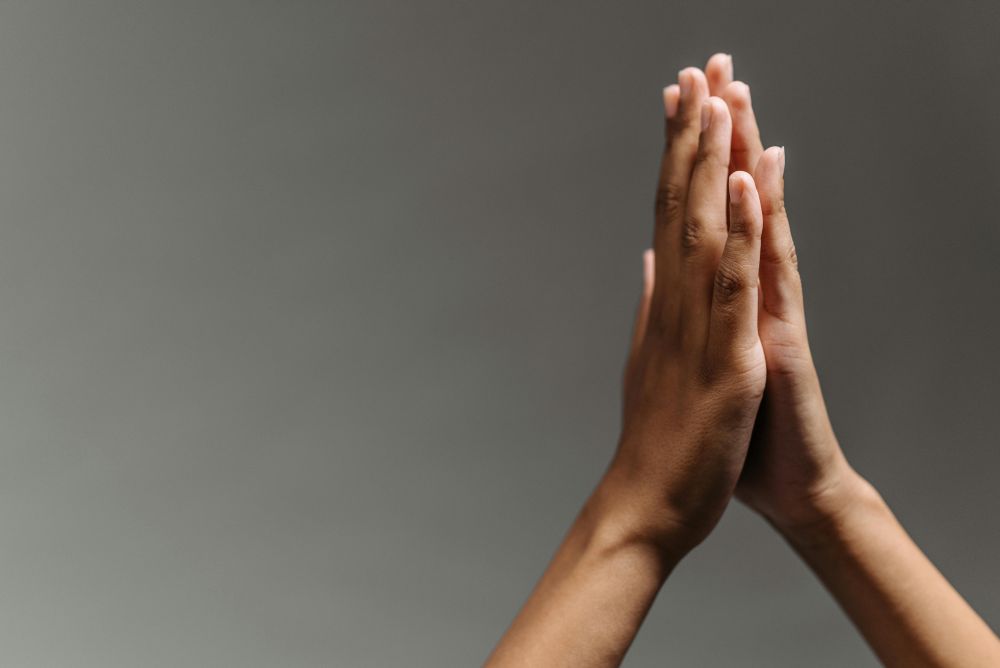by Rev. Dr. Jim Warnock

We have just returned from a week in New Jersey and New York. We spent a very pleasant time with Anne and Brian in the former. Then we met Dave, Kayla and Zahava at Kayla’s father’s impressive apartment in Manhattan. We spent some time at the Met and the World Trade Center memorial. It was good to get away for a few days, but I’m happy to be back.
The apartment is two blocks from Columbia University, so we witnessed up close the student demonstrations for Palestine. There was a large NYPD presence and a lot of arrests, but it was a non-violent protest. That said, I’m not sympathetic to the students. The Middle East is a complicated place, much more so than we in the Unites States tend to understand. Israel has its problems, but they’re not committing genocide in Gaza, as the protesters insist. As Christians, we need to understand that and focus our prayers accordingly. I was impressed by a statement in the recent Cross of Nails newsletter. It’s from the Rev. Su McClellan, curate at Coventry Cathedral in England.
“How many times have we prayed for God to hear us since the appalling Hamas attacks of October 7th? How many times have we prayed for the release of the hostages held by them? For an end to the overwhelming bombing of Gaza, which has killed mostly women and children? For an end to the siege which has resulted in 2 million people facing the threat of imminent famine? For a stick to be placed in the spokes of rising anti-Semitic and Islamophobic attacks beyond the borders of Israel and Palestine?
“At the moment, the fog of war makes it almost impossible to imagine a future beyond the horrors of the current conflict. Many of the people I meet, as I go about my work for Embrace the Middle East, have a view on how the longstanding Israeli/Palestinian conflict should be resolved. At Embrace, we don’t hold a position on what the future of the land we call holy should look like. We are clear that it is a matter for those who call Israel and Palestine home. However, that does not mean that each of us does not have a part to play in healing the wounds of history, learning to live with difference, celebrating diversity and building a culture of justice and peace.
“For both Palestinians and Israeli Jews, the wounds of history are deep, and in some cases, still open and festering. Before healing can begin, we have to stop infection. How those of us who surround the conflict, but are not part of it, behave plays a significant part in feeding or stopping contagion. Do our actions form a healing salve, or do they open the wounds wider?”
Rev. McClellan asks a good question, something too often ignored by those who seek a simple black and white answer. This is a conflict that has been going on for a long time and in which neither side is without its errors and excesses. What do we do? I was impressed by something Archbishop Hosam Naoum said at a meeting of bishops in the Anglican communion at which the Middle East was the topic of discussion. My daughter Anne and I spent a couple of hours with Bishop Naoum in 2015 when we were in Jerusalem. He made the point then that he was in a unique role, a Christian, a Palestinian, and an Israeli citizen, someone who could speak to all sides in the conflict. I like what he said now to the assembled bishops. “Archbishop Hosam urged his fellow-bishops to keep on speaking out for peace and reconciliation, and to hold together in their prayers both Palestinians and Israelis ‘so that they cannot be divided even in our prayers'”.
It may seem a small thing, but the Archbishop has captured the complexity of the Middle East and pointed us to a way in which we can participate in a solution. Prayer shapes our lives. If it points us toward reconciliation, we can join him in speaking to all sides, in, as Rev. McClellan suggests, healing the wounds of history, learning to live with difference, celebrating diversity and building a culture of justice and peace.
1 Rev. Su McClellan, “Praying for Resolution in the Holy Land,” CCN Newsletter, April 2024
2 “Archbishop Hosam Naoum Speaks on Conflict in the Holy Land in new ‘Bishops in Conversation’ series, Anglican Communion News Service, March 22, 2024
